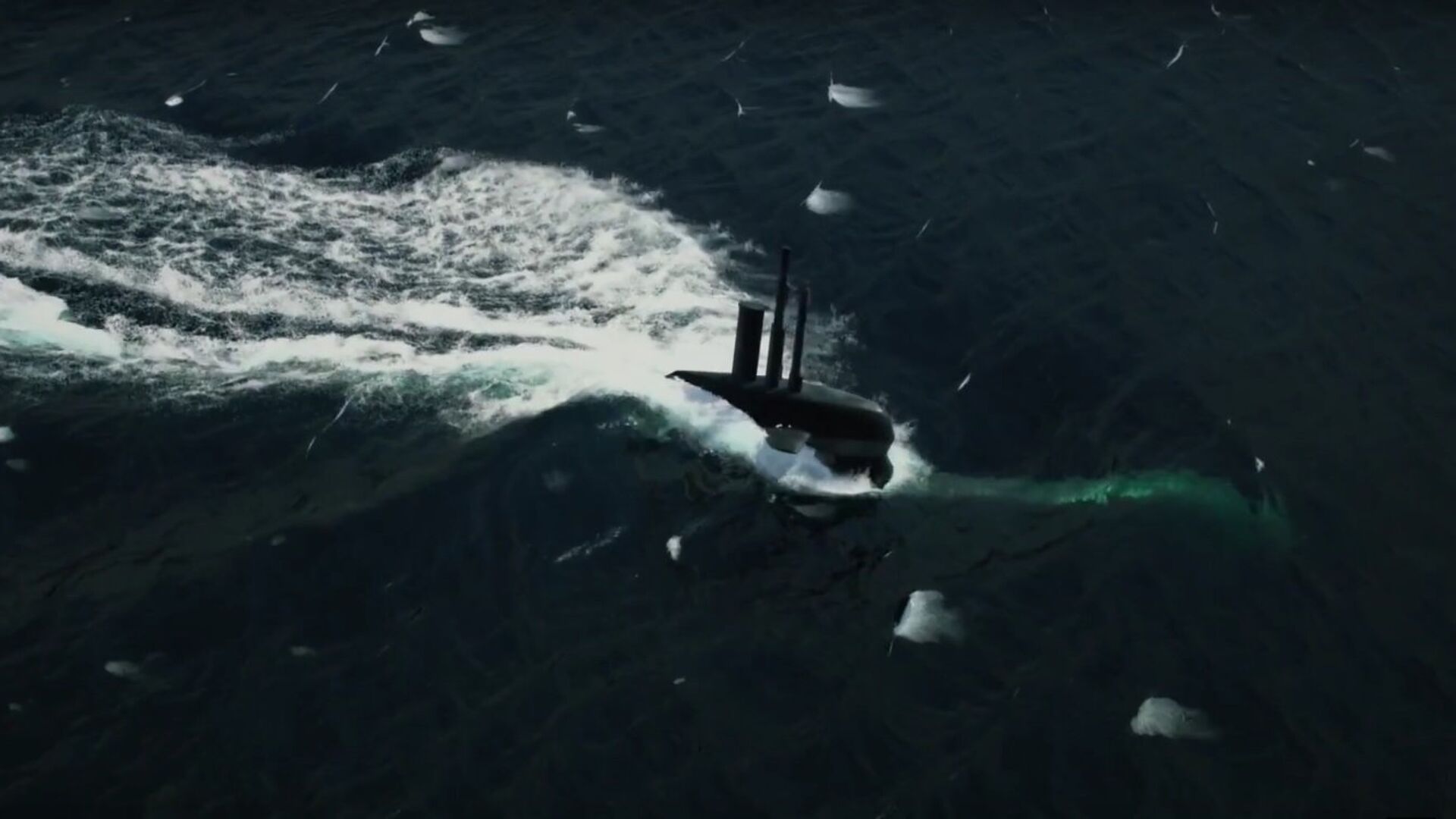Sweden's Saab Eyes Business Opportunities to Modernise Australia's Submarines Thanks to AUKUS

© Photo : YouTube/Military HD Videos
Subscribe
Australia's decision to go nuclear will mean that the life of its current submarine fleet will have to be extended further. Given that Canberra's present stock of conventional submarines was developed in Sweden during the Cold War, it makes the Nordic country perfectly placed for modernisation and maintenance, according to Saab's strategy manager.
The new AUKUS safety pact between the USA, the UK and Australia creates new export opportunities for Saab, the Swedish company has maintained. With France eliminated as a supplier of new submarines, Saab sees new possibilities to modernise Australia's current fleet submarines while the country is waiting for the first batch of US-British nuclear submarines to be delivered, which may take more than a decade.
According to Saab, Australia's decision to buy nuclear submarines from the US and the UK, instead of conventional attack submarines from France as earlier planned, will mean that the life of its current submarines will have to be extended further compared to previous plans. Australia's present fleet of conventional submarines was developed in Sweden during the Cold War, which gives the Nordic country extra opportunities.
“The Collins-class submarines are basically a Swedish design, developed by Sweden and Kockums. They were developed at about the same time as the Gotland class, which still operates in Sweden,” Saab Kockums marketing and strategy manager Lars Brännström told national broadcaster SVT.
Saab estimates that it will take a very long time before the first nuclear submarines can be delivered by the US and the UK, which, in turn, creates a gap for the Swedish company.
“It is unlikely that anyone will be able to deliver nuclear submarines before 2040. The life of Collins submarines must therefore be extended,” he mused, suggesting that this is where Saab steps in.
Brännström estimated the contract to modernise Australia's six current submarines to cost up to SEK 40 billion ($4,6 billion).
“With the experience we have from having done the upgrades on the Gotland and Uppland submarines in Sweden, which is about the same generation as the Collins submarines, we are well-positioned to support a life extension programme of the Collins submarines,” Brännström said, emphasising that Saab will primarily answer for design, whereas a lot of production and development will be required on site in Australia.
One of the features of the new technological defence pact AUKUS concluded in mid-September is to develop Australia's new submarine fleet, which will consist of at least eight long-range nuclear-powered submarines in the deep oceans. The announcement created a deep diplomatic rift between the EU on the one hand and the US and the UK on the other, as Paris believed Australia would buy conventional French submarines.
“It definitely came as a surprise. Like many others, we are still a little shocked by this news. We compete with France in a number of other markets for conventional submarines. The future will show how French industry is affected by this,” Brännström concluded.
“With the experience we have from having done the upgrades on the Gotland and Uppland submarines in Sweden, which is about the same generation as the Collins submarines, we are well-positioned to support a life extension programme of the Collins submarines,” Brännström said, emphasising that Saab will primarily answer for design, whereas a lot of production and development will be required on site in Australia.
One of the features of the new technological defence pact AUKUS concluded in mid-September is to develop Australia's new submarine fleet, which will consist of at least eight long-range nuclear-powered submarines in the deep oceans. The announcement created a deep diplomatic rift between the EU on the one hand and the US and the UK on the other, as Paris believed Australia would buy conventional French submarines.
“It definitely came as a surprise. Like many others, we are still a little shocked by this news. We compete with France in a number of other markets for conventional submarines. The future will show how French industry is affected by this,” Brännström concluded.
Saab Kockums AB is a shipyard headquartered in Malmö, Sweden, owned by the Swedish defence company Saab Group. While it has a history of civil vessel construction, it is most renowned for its military corvettes and submarines.

